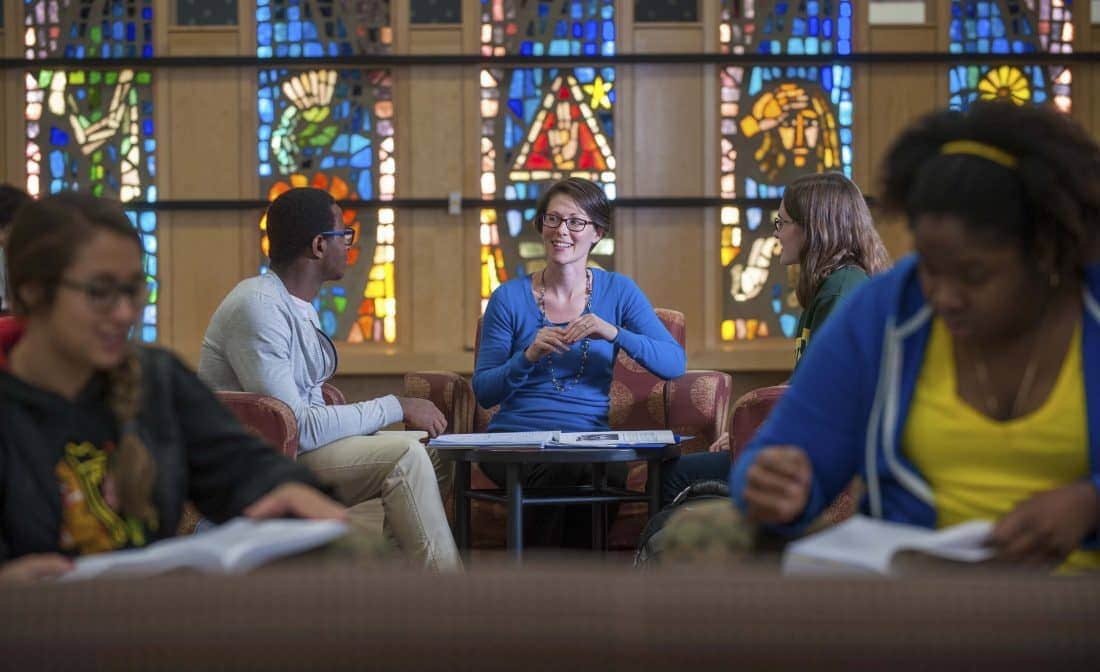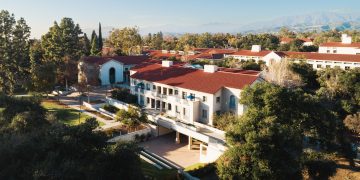Engaging with Faculty During the Admission Process
You encounter a lot of new faces in the college admission process, from admission counselors to student tour guides, and all offer valuable insight that will help you in your decision-making process. Faculty don’t always make it on the list – but they’re some of the most important people you should see during your college visit.
Meeting with faculty during your college search will give you a firsthand look at a college’s classroom culture. You’ll be able to see how faculty interact with students, experience how welcoming or inviting they may be (think about those office-hour visits in your future!), and get a glimpse of how passionate and knowledgeable they are about their academic areas.
At some schools, particularly small liberal arts colleges, you’ll build close relationships with your professors – professors who may end up writing letters of recommendation for your grad school applications or being references during your job search. At St. Norbert College, we hear time and time again that those relationships are meaningful and last well beyond a student’s four years here. The earlier you start them, the more fruitful they can be.
Engaging with faculty early on also will set you apart from other applicants. Showing faculty – and admission staff – that you’re highly engaged in your college search is bound to make a good impression.
So, how do you engage with faculty during your college search? Follow these steps:
Request a Meeting
Ask to meet with a faculty member during your campus visit. At some schools, this may be as simple as checking a box and indicating a preferred field of study when scheduling a visit. At other schools, you may need to ask your admission counselor to arrange a meeting for you.
Do Your Research
- Review the college’s website, and see if the faculty member you’ll be meeting with has a bio page. There you likely can see which courses the faculty member teaches and get an idea of their research area. Find out, too, what their title is and make a note of it. When you meet with them, be respectful and use their title (i.e., Dr. or Ms./Mr.).
- Be prepared to share why you are interested in the institution or the major. It’s OK to not be decisive about your area of focus: Faculty won’t expect you to know your entire career path. Instead, you can share some of the classes you’ve enjoyed in that faculty member’s area or why you might be interested in exploring the area in college.
Prepare Questions
Faculty always view questions positively, and questions indicate interest and show you are engaged. But make sure you’re prepared to ask the questions yourself. Your parents are welcome to join the meeting, but this is an opportunity for you to shine!
Questions such as “what is your favorite course to teach and why” and “what do you like most about students at this college” will allow you to hear the passion faculty members have for their area of study as well as the students they teach. You also can ask faculty to share examples of what their previous students have gone on to do after graduation. Faculty love to brag about the successes of their former students – and that’ll give you a glimpse at the mentorships faculty form. End by asking if there is anything you did not ask about that they would like to share with you.
Before you head into your meeting, make sure the questions you have lined up are appropriate for a faculty member to answer. Take your list of college-search questions and identify who might be the best person to ask for each. In other words, reserve the questions about scholarships for the financial aid office and the questions about housing and student life for your admission counselor.
Follow Up
Send an email after your visit to thank the faculty member for their time. If you decide to attend the institution, email the faculty member to let them know, and share with them how their time spent meeting with you helped you reach this decision.
Then, when you’re on campus as a new student, don’t be a stranger! Stop by during faculty open-office hours and continue building those meaningful, impactful relationships that will last well beyond your college career.




